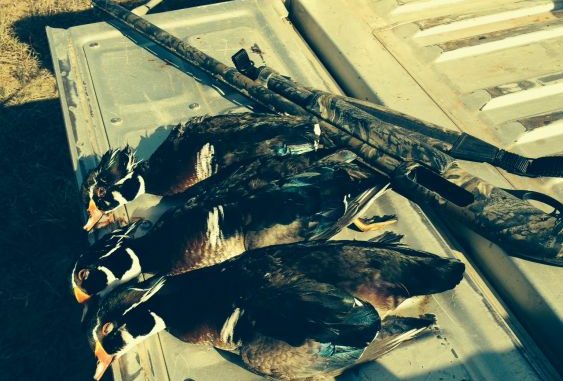
Is it time to prohibit the waste of fish and wildlife in Louisiana?
Not long ago, I received a phone call from a man with a question.
“Do we have a law in Louisiana banning the waste of fish or wildlife?”
The answer is that we don’t, and his next question was, “How do we go about getting one?”
I was curious as to what prompted his inquiry. He described a recent event during which recreational game fish had been legally caught and discarded with no effort to filet the fish or otherwise use them for food.
Unfortunately, this was not the first time I have heard of (or seen) such shameful conduct.
Like most hunters and fishermen, I was taught at a very young age to never waste anything. “If you shoot it or catch it you eat it,” was the rule — with no exceptions.
Without a doubt, the vast majority of hunters and fishermen still live by this code. For that matter, throughout my career even the poachers and those who exceeded daily limits didn’t waste what they killed.
But there are and always have been exceptions, and for those we have laws. Federal migratory game bird regulations have always included the wanton waste law requiring retrieval of all birds if possible and retention in the custody of the hunter in the field.
Failure to recover crippled birds and abandoning birds of the wrong species, sex or in excess of the daily limit are typical infractions.
While this federal regulation is a good one, some states have adopted additional waste laws.
Arkansas is a prime example. “The Natural State” is blessed with excellent waterfowl hunting, and thousands of non-resident hunters flock in every fall.
Several years ago, hotel managers began reporting discarded ducks and geese in hotel dumpsters.
Wildlife officers set up surveillance and watched as unethical hunters returning from morning hunts drove up to the dumpsters and tossed the day’s take in the trash. The state acted quickly to address the problem.
Many western states have waste laws pertaining to big game.
Successful mountain hunts often require long hikes uphill or through difficult terrain. The real work begins when that bull, buck or ram hits the ground.
Boning out meat, loading it on a pack frame and walking out under the load, only to repeat the process over and over again is both a physical and mental challenge. It is easy to understand why some people are tempted to take the cape, antlers or horns and choice cuts, leaving the balance for the coyotes.
Some states address the threat of waste with a requirement that all meat must be removed from the field before the cape and antlers. Others require mandatory check-in and weighing of the meat to ensure against waste.
In Colorado, it is a felony to kill and abandon big game, and it is illegal to remove only the hide, antlers or other trophy parts and leave the carcass in the field.
In the South our hunting methods are different and retrieval of downed deer is usually easier. In most situations it’s pretty easy to get near the kill site with an ATV or vehicle.
In situations where that is not an option, things still aren’t that bad. I have quartered deer and hogs in the woods and packed the meat out in one trip with the help of one other person.
So it’s not easy to understand anyone doing otherwise.
Even more difficult to understand is why someone would bring a deer home or into camp and then waste a significant amount of the meat. Yet in recent years and in some circles such waste has become prevalent.
The usual scenario is to skin the hindquarters and back to just before the shoulders without ever field dressing the carcass, and then removing the back straps and hindquarters.
The shoulders, neck and inner tenderloins are then discarded. I had heard of it, but never actually saw it until visiting a carcass dump site on a hunting lease.
It is less common but not unheard of for some to waste small game. On a few occasions I found squirrels dropped near where the so-called hunter had parked.
Apparently they were dumped before heading home — easier than a skinning job or taking the time to donate to someone who would appreciate the gift.
Dumping fish from the cooler at the boat landing is pretty typical, as well. It’s fine to give fish we don’t want to clean to another fisherman who isn’t having any luck, but absent that, take the catch home and do the cleaning job or give it to someone who will.
So do we need a waste prohibition law here in the Sportsman’s Paradise? I’m no fan of over-regulation and unnecessary laws.
But we may want to consider it.




